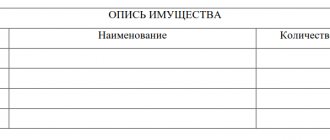Under a residential lease agreement, the owner or a person authorized by him (the lessor) undertakes to provide the tenant with residential premises for a fee for possession and use for living in it.
Only an individual can be a tenant of Legal a person can receive residential premises for temporary possession and use for citizens to live in only on the basis of a lease agreement.
- consensual,
- mutual
- reimbursable.
- double-sided
Sides:
Lessor - the owner of the residential premises or another person endowed by law or the owner with the right to transfer the residential premises for rent.
Landlord:
- a citizen in compliance with the general requirements for legal capacity and legal capacity.
— A legal entity may be given residential premises for possession or use on the basis of a lease or other agreement, but cannot live in the residential premises itself, but may transfer it to citizens for use.
Citizens who permanently reside with the tenant are not parties to the contract and do not bear any obligations to the landlord.
The form is simple written . non-compliance does not invalidate the contract. if the form is not followed, the parties have the right to prove the existence of an agreement using any means of evidence, with the exception of reference to witness testimony.
Citizens permanently residing with the employer must be indicated in the contract. M.b. installed at the conclusion and during the validity period of the contract.
The subject is a living space, that is, a room that is structurally designed and suitable in terms of sanitary and technical conditions for permanent residence of people.
Subject is an essential condition; if it is incompletely defined or not defined, the contract is considered not concluded.
Isolated residential premises suitable for permanent residence - an apartment, a residential building, part of an apartment or a residential building.
Residential - from the moment its construction is completed, it is put into operation and registered as a residential building by a specialized organization that carries out technical inventory (BTI). Suitability for living – compliance with sanitary and technical standards.
Price (amount of rental fee) is an essential condition. In a commercial lease agreement, it is determined by agreement of the parties. It is possible to limit the freedom of the parties in its formation by establishing in legislation the maximum amount of payment for residential premises.
Unilateral changes in the fee amount are NOT allowed, except as provided by law or contract.
The tenant is obliged to pay rent monthly, no later than the 10th day of the month following the previous month. The rule is mandatory for a social tenancy agreement and applies to commercial tenancy relationships in the absence of another provision in the agreement.
Usually paid in cash, other forms of payment are possible by agreement of the parties.
Term - does not apply to essential conditions,
A commercial lease agreement is concluded for a period not exceeding 5 years . If the contract does not specify a term, the contract is considered to be concluded for 5 years.
Agreements are divided into:
- short-term - concluded for a period of up to 1 year,
- long-term - for a period of 1-5 years.
The scope of powers of the employer in a short-term contract is already:
- does not have the right to move in citizens for the purpose of permanent residence,
- temporary residents,
- does not have a pre-emptive right to conclude a contract for a new term,
- cannot sublease the premises or replace the tenant.
— restrictions are optional.
Types of agreement:
— a social rental agreement that is valid in the sphere of state and municipal housing stock;
- commercial rental agreement.
A commercial lease agreement is an agreement under which the landlord transfers to the tenant a residential premises of unlimited size for a negotiated fee for temporary use and possession, and the tenant undertakes to use it in accordance with its intended purpose and timely fulfill the obligations under the contract.
Differences between social and commercial rental housing:
— a social tenancy agreement is indefinite, and a commercial tenancy agreement is fixed-term (up to 5 years) with a pre-emptive right to conclude a residential tenancy agreement for a new term;
— the grounds for terminating social and commercial rental contracts are different;
— the scope of the parties’ rights is different;
— the rent under a commercial rental agreement is established by agreement of the parties, and in social rental relationships it is determined by regulations.
The regulation of housing relations is the joint responsibility of the Russian Federation and its constituent entities.
The main federal laws regulating housing relations:
- Civil Code of the Russian Federation;
- Housing Code of the Russian Federation;
— Law “On the Fundamentals of Federal Housing Policy.”
If the contract is concluded for a period of up to one year, the tenant has the right to move in permanent residents if this is agreed upon.
Co-tenants - having notified the lessor, enter into an agreement with the lessee that they are jointly and severally liable to the lessor.
Move-in is possible subject to the following conditions:
1) consent of the lessor;
2) consent of citizens permanently residing with the employer;
3) compliance with the norm of living space per person. NOT required when moving in minor children
Temporary residents can be moved into residential premises by common consent of the tenant and citizens living with him for a period of no more than 6 months . do not acquire independent rights to use residential premises.
Rights and obligations of the parties.
The lessor is obliged:
1) transfer to the tenant the vacant residential premises specified in the contract in a condition suitable for habitation.
2) carry out proper operation of the residential building in which the rented residential premises are located, ensure the provision of necessary utilities for a fee, and ensure the repair of the common property of the house.
3) carry out major repairs; the responsibility may be assigned to the tenant by agreement of the parties.
4) no later than 3 months before the expiration of the contract, offer the tenant to conclude a contract on the same or different terms, or warn the tenant about refusing to renew the contract due to the decision not to rent out the premises for at least a year. If neither party expressed an intention to terminate or change it before the expiration of the contract, the contract is considered extended on the same terms and for the same period.
If the landlord refused to renew the contract due to a decision not to rent out the premises, but within a year entered into a new contract with another person, the tenant has the right to demand that such contract be declared invalid and (or) compensation for losses caused by the refusal to renew the contract with him.
The lessor has the right:
1) with the consent of the tenant, refurbish the residential building in which the rented residential premises are located, if this significantly changes the conditions of use of the premises.
2) prohibit the residence of temporary tenants in case of non-compliance with the requirements of the law on the standard of living space per person and demand the eviction of temporary tenants who are staying longer than the period for which they were moved in;
3) refuse to move in new persons living together with the tenant, except for minor children, if as a result of their move in the requirements of the legislation on the standard of living space will be violated;
4) require the tenant to pay fees and pay for utilities (if their payment is not the responsibility of the landlord).
The employer is obliged:
1) use the premises only for living
2) ensure the safety of the residential property and maintain it in proper condition;
3) carry out routine repairs at your own expense, the responsibility may be assigned to the lessor;
4) pay rent for residential premises in the amount, manner and terms stipulated by the contract;
5) upon termination of the contract, vacate and hand over the premises to the landlord in proper condition.
The employer has the right:
1) use the premises for one’s own residence;
2) move in other persons for permanent residence with the consent of the landlord and all persons permanently residing with the tenant; compliance with the standard living space per person (except for minors)
3) to move in, with the consent of persons permanently residing with him, and with prior notification to the landlord, temporary residents for a period of no more than 6 months;
4) with the consent of the landlord, carry out reconstruction and reconstruction of the premises.
5) with the consent of the lessor, transfer for a period of time part or all of the premises rented by him for use to the subtenant. The tenant remains responsible to the landlord.
A sublease agreement can be concluded subject to compliance with the standard living space per person.
This agreement is for a fee.
The validity period cannot exceed the term of the rental agreement.
If the lease agreement is terminated early, the sublease agreement is terminated simultaneously.
The sublease agreement is NOT subject to the rule on the preemptive right of the tenant to enter into an agreement for a new term.
Since subletting is subject to the provisions of the Civil Code and the Housing Code on the rental agreement, the contract with the subtenant can be terminated on the grounds provided for termination of the residential rental agreement;
6) upon expiration of the contract, extend it for a new term.
Changing the legal relationship of renting residential premises: grounds, procedure, consequences.
During the validity period of the contract, it can be changed on the grounds provided for in Chapter. 29 Civil Code (amendment and termination of the contract):
Amendments to the agreement are possible by agreement of the parties, unless otherwise provided by law or agreement.
At the request of one of the parties, the agreement can be changed by a court decision only:
1) in case of a significant violation by the other party;
2) in other cases provided for by law or agreement.
Significant - a violation of the contract by one of the parties, which entails such damage for the other party that it is largely deprived of what it had the right to count on under its contract.
In the event of a unilateral refusal to fulfill the contract in whole or in part, when such refusal is permitted by law or by agreement of the parties, it is considered modified.
A significant change in the circumstances from which the parties proceeded when concluding the contract is the basis for its change, unless otherwise provided for by the contract or follows from its essence.
Essential - circumstances have changed so much that, if the parties could have reasonably foreseen this, the contract would not have been concluded by them at all or would have been concluded on significantly different terms.
If the parties have not reached an agreement to bring the contract into compliance with significantly changed circumstances, it may be terminated, and in exceptional cases, when termination is contrary to the public interest or would entail damage for the parties significantly exceeding the costs necessary to execute the contract on the terms changed by the court, it may be amended by the court at the request of an interested party if the following conditions are simultaneously met:
1) at the time of conclusion, the parties assumed that such a change in circumstances would not occur;
2) the change in circumstances was caused by reasons that the interested party could not overcome after their occurrence with the degree of care and prudence that was required of it by the nature of the contract and the conditions of turnover;
3) execution of the contract without changing its terms would so violate the relationship of property interests of the parties corresponding to the contract and would entail such damage for the interested party that it would largely lose what it had the right to count on when concluding the contract;
4) it does not follow from business customs or the essence of the contract that the risk of changes in circumstances is borne by the interested party.
An agreement to change is made in the same form as a contract, unless otherwise follows from the law, other legal acts, contract or business customs.
A request for change can be submitted by a party to the court only after receiving a refusal from the other party to the proposal to change the agreement or failure to receive a response within the period specified in the proposal or established by law or the agreement, and in its absence - within thirty days.
If the contract is amended, the obligations of the parties remain unchanged.
obligations are considered changed from the moment the parties enter into an agreement to amend the contract, unless otherwise follows from the agreement or the nature of the change, and if changed by judicial procedure - from the moment the court decision to amend the contract enters into legal force.
The parties do not have the right to demand the return of what they performed under the obligation before the change in the contract, unless otherwise provided by law or by agreement of the parties.
If the basis for the change was a significant violation of the contract by one of the parties, the other party has the right to demand compensation for losses caused by the change.
Contents of the rental (sublease) agreement for residential premises
In the legislation, residential premises are understood as isolated premises, which are real estate and are suitable for permanent residence of people (fits all the requirements of the legislation on living standards), as defined in Art. 15 Housing Code of the Russian Federation. Accordingly, a lease (sublease) agreement can be concluded for any such premises.
IMPORTANT. The tenant under a lease (sublease) agreement for residential premises cannot be a legal entity; it enters into a lease agreement and uses the residential premises only for living – Art. 671 Civil Code of the Russian Federation. If a different purpose is indicated in the completed contract form, the contract is invalid.
The contract must contain the following terms:
- The object of this agreement is residential premises and its description.
- The agreement specifies the details of the parties, the cost of hiring (subhiring), the payment procedure, the rights and obligations of the parties.
- The drawn up contract specifies the rental period and information about persons who have the right to live with the tenant.
- Conditions for termination of the contract at the initiative of both parties are required.
What is the subject of the agreement?
How to create this document? The owner rents out the living space for use for a fee. It describes what a dwelling is : room(s), separate apartment, individual house, part of it.
Indicated:
- floor;
- listing and area of internal premises of housing, balconies, built-in wardrobes, electrical, plumbing and other equipment;
- general house equipment;
- utilities and household services provided to the tenant;
- terms and responsibility for safety;
- if part of an apartment (house) is rented out, then those who still live at the same address have the right to use the shared premises.
The landlord rents it to the tenant, members of his family, and he receives rental housing for the purpose of living in it together with the individual indicated by them. persons. For this, the employer regularly pays an agreed amount . You can find out what the payment includes in our article.
An individual house, separate apartment, or room(s) are considered suitable
The parties do not have the right to consider part of the room (the so-called bed) as an object of rental, since it is not a residential premises by law.
The law does not impose restrictions on the size of privately rented living space, rent or number of residents.
However, according to the latest edition of No. 5242-1FZ, registration of citizens in a home who do not intend to live in it entails administrative or criminal penalties.
Features of the contract
The lease (sublease) agreement for residential premises has the features defined in Chapter. 35 Civil Code of the Russian Federation:
- The tenant entering into a lease (sublease) agreement for residential premises must only be an individual.
- The lessor, under a lease (sublease) agreement for residential premises, can be either an individual or a legal entity, or a municipality in the case of social rent.
- The agreement is concluded only in writing.
IMPORTANT. The difference when concluding an agreement is that the owner is engaged in renting, and the tenant is subletting with the consent of the owner.
Concept
registration of the landlord’s entrepreneurial activity in order to rent out an apartment .
The concept of hiring applies only to individuals .
The landlord enters into a rental contract with a legal entity. However, housing under such a document can only be used for people to live in it (more details in our article).
The lessor in a private housing stock is a person who has the right, on the basis of legal documents, to dispose of this premises by renting it out.
They have the right to be a capable person who has legal status on the territory of the Russian Federation. Citizenship, lack thereof, and property status do not play a role.
Rent
One of the main terms of the contract will be the amount of monthly rent, the timing and procedure for its transfer to the owner. In addition, the conditions for increasing the monthly rent should be separately specified. For example, that indexation is possible once a year, but not more than 10%.
The procedure and amount of payment of utility bills is also important Typically, all current meter payments (for water, electricity, internet) are borne by the tenant, and the rest of the rent - for heating and maintenance of the common property of the house - is borne by the owner. It’s a good idea to specify in the contract who pays for the concierge’s services.
Orders and claims from regulatory authorities
Dissatisfied employees can contact the State Labor Inspectorate (SIT) with a complaint against the employer. The GIT can learn about violations of the organization not only from employees. Government agencies can report this: the prosecutor’s office, the police, the Federal Tax Service, and so on. If the State Tax Inspectorate finds out that the employer is hiding behind a civil process agreement instead of a labor agreement, it will issue him an order to eliminate the violation. The employer can either comply with it or try to appeal it in court.
There is no point in going to court if there really is a violation. If there is doubt about the nature of the relationship, the court interprets it as a labor relationship (Part 3 of Article 19.1 of the Labor Code of the Russian Federation).
Until January 1, 2014, the State Labor Inspectorate could not independently go to court with a demand to recognize the relationship as an employment relationship. Now the State Tax Inspectorate can conduct an inspection, prepare materials based on its results and take them to court with a claim to re-qualify the contract. In this case, the opinion of the employee himself is not taken into account. In this case, the court will study all the information and make a decision.
GIT does not often go to court to re-qualify contracts with individual entrepreneurs. The status of an entrepreneur implies greater security when working with customers and the possibility of not complying with internal regulations.
Pledge and inventory of property
As a rule, the rental agreement specifies that a traditional security deposit in the amount of one month's rent has been made, which can either go towards the last month of occupancy or be used to compensate for damage caused to the premises.
An ideal appendix to the rental agreement would be a complete list of property (furniture and household appliances) located in the apartment (with notes indicating which furnishings are new and which are used, and also indicating the cost of compensation in case of damage). If you see defects in furniture and decoration, you should take photographs and make appropriate notes in the contract.
This procedure will help preserve the guarantee payment, which should be returned to you after termination of the contract.
Mutual responsibility of the parties: employer and employee, customer and contractor
The employer is obliged to make the following payments in favor of the employee:
- average earnings for the period during which he was illegally deprived of the opportunity to work;
- compensation for damage to health and property;
- compensation for moral damage
- interest for late wages.
The employee, in turn, bears financial responsibility to the organization within the framework of his monthly earnings. For violation of discipline, he may be subject to a reprimand, reprimand or dismissal.
The customer of work or services is obliged to compensate the contractor for losses caused by improper performance of duties. The performer is responsible to the customer in the same way.
The contractor cannot be brought to disciplinary liability.
Agreement with realtor
Today it is not so difficult to find a rented apartment without intermediaries. Aggregators like Avito.ru or Domofond.ru will help with this. If you decide to use the services of realtors, you should carefully study the terms of the contract.
First of all, pay attention to the subject of the agreement , which should include not only the selection of an apartment, but also guarantees in case in the first months you are forced to leave the apartment you occupy not through your fault, but, for example, due to conflicting and inadequate owners. In this case, the agency is obliged to choose another option, and such an obligation must be enshrined in the terms of the contract.
Sample form of a contract for renting a room in a residential building
Agreement for renting a room in a residential building
___________________________________ ____________________________________
(name of locality) (day, month, year in words)
Citizen(s) _____________________________________________________
(Please indicate full name)
passport series ____________________ N ______________________, issued “____”
_____________________ 200_
__________________________________________, department code __________,
(name of issuing authority)
hereinafter referred to as the “Lenter”, acting on his
name, on the one hand, and citizen(s) _________________________________
(Please indicate full name)
passport series ___________ N ____________, issued “____” _________ 200_
__________________________________________, department code ___________,
(name of issuing authority)
hereinafter referred to as the “Tenant”, acting on his
name, on the other hand, have entered into this Agreement as follows:
1. The Lessor transfers and the Tenant accepts for use one
isolated room with an area of _________________________________ sq. m. in residential
(in numbers and words)
house owned by the Lessor by right of ownership
basis_______________________________________________________________.
(indicate the name of the title document, by whom and when issued)
2. A residential building is _________ - storey
__________________________________________ building consisting of _____ rooms
(wooden, brick, other)
and is located at:
_______________________ region, _______________________________________,
(locality: district, city, town, village)
street ______________________, house N ____, building (building) N ____.
3. This Agreement is concluded for ________ years.
4. The tenant of the residential premises has the right to terminate at any time
Lease agreement with written notice to the Lessor 3 (three) months before
the scheduled termination date of employment, in accordance with paragraph 1 of Art. 687 Civil Code of the Russian Federation.
5. The employer is obliged monthly no later than ____ date of the current
pay rent for a month, which is _______________________
(in numbers and words)
rubles for one month.
6. Rent is paid in cash against the Landlord's receipt.
7. The room is transferred to the Tenant for living.
8. The tenant is obliged to use the room only for living,
ensure its safety and maintain it in proper condition.
9. The tenant has no right to sublet a room or
provide it to third parties.
10. The tenant is obliged to keep the room clean,
your account for current repairs.
11. The employer does not have the right to carry out reorganization and reconstruction
rooms without the consent of the Landlord.
12. The lessor has the right on the basis of clause 2 of Art. 687 Civil Code of the Russian Federation
demand termination of this Agreement in court if
The tenant of a residential room does not pay rent for the residential premises within
six months.
13. Changes in the terms of this Agreement or its termination may
take place by agreement of the Parties.
14. In all other respects that are not provided for in this Agreement,
The civil legislation of the Russian Federation is subject to application.
15. This agreement is concluded in two original copies, according to
one copy for each party. Both copies have the same
legal force.
Landlord Tenant
________________ __________________ ________________ __________________
(signature) (full name) (signature) (full name)
Accommodations
All everyday issues should be discussed before signing the contract, and the most critical points should be recorded on paper.
Is it possible to live with pets? Is smoking allowed indoors? Is it possible to remove some of the furniture and bring your own? Is it allowed to accommodate guests and for how long? How will the repairs be carried out and how will the owner reimburse the cost if the contract is terminated? How and when will the tenant transfer payment to the owner?
Even if the answers to these questions seem obvious to you, it is still better not only to ask them, but also to record the agreements in the appropriate document.
Remuneration: regular or one-time
Employees on staff regularly receive salaries in the agreed amounts . According to the rules of the Labor Code of the Russian Federation, salaries must be transferred at least twice a month - an advance payment and the main part. For failure to comply with payment deadlines, the employer issues compensation to the employee. It is charged for each overdue day as 1/300 of the refinancing rate.
If an employee works properly and fully performs his functions, he cannot be paid a salary below the minimum wage. In 2020, the minimum wage increases to 12,130 rubles.
Employees under a GPC contract will receive remuneration when they provide the customer with the result of the work performed . So the contractor can receive payment even once every six months, if such a period was required to complete the order.
The GPA can include the delivery of work in stages or the payment of advances. Then the customer will pay regularly, after accepting part of the work performed.
Deadlines
This document is signed for a long period .
Agreements on short stays (hotel services) are regulated by RF PP N 490 dated 04/25/1997, and Rostourism order N 86 dated 07/21/2005.
The provisions of the Civil Code and the Housing Code do not apply to them.
You can learn about the features of a long-term apartment rental agreement, as well as how to conclude a short-term one, on our website.
According to Article 683 of the Civil Code (clause 1), a contract in private housing. The fund is concluded for a period of no more than five years . If a specific period is not specified, it is considered to be five years.
When the agreement expires, the tenant has the right to renew it as a matter of priority. No later than three months before its end, the landlord offers him to maintain or change the terms of the agreement or demands that he vacate the property. Read our article about how to extend or change a residential lease agreement. You can also download a sample additional agreement on our website.
If he has not done this, the agreement is mechanically extended on the old terms for the same period.







